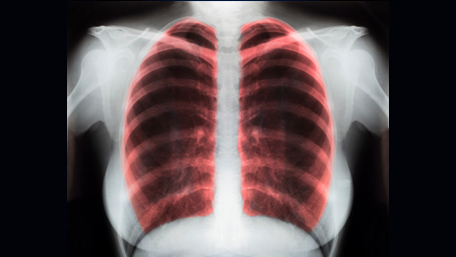
03/06/2020
Hot Topics of the Day are picked by experts to capture the latest information and publications on public health genomics and precision health for various diseases and health topics. Sources include published scientific literature, reviews, blogs and popular press articles.
Sign up MyPHGKB to receive the daily hot topic email alert.
Archived Hot Topics of the Day By Date
We’re learning a lot about the coronavirus. It will help us assess risk
H Branswell, Stat News, March 6, 2020
SARS-CoV-2 Cell Entry Depends on ACE2 and TMPRSS2 and Is Blocked by a Clinically Proven Protease Inhibitor
M Hoffman et al, Cell, March 5, 2020
Coronavirus Disease 2019 (COVID-19)-Updates on COVID-19 diagnosis and treatment
JAMA Network, 2020
Evaluating the Use of Circulating MicroRNA Profiles for Lung Cancer Detection in Symptomatic Patients
T Fehlmann et al, JAMA Oncology, March 5, 2020
New next-generation sequencing technique dramatically shortens diagnosis of sepsis
Eureka Alert, March 4, 2020
Risk stratification of prostate cancer through quantitative assessment of PTEN loss (qPTEN)
JNCI, March 2020
The Challenges of Optimizing Biomarkers To Guide Clinical Decision Making
SM Hewitt JNCI, March 4, 2020
Using human genetics to guide the repurposing of medicines.
Bovijn Jonas et al. International journal of epidemiology 2020 Feb
Disclaimer: Articles listed in Hot Topics of the Day are selected by Public Health Genomics Branch to provide current awareness of the scientific literature and news. Inclusion in the update does not necessarily represent the views of the Centers for Disease Control and Prevention nor does it imply endorsement of the article's methods or findings. CDC and DHHS assume no responsibility for the factual accuracy of the items presented. The selection, omission, or content of items does not imply any endorsement or other position taken by CDC or DHHS. Opinion, findings and conclusions expressed by the original authors of items included in the Clips, or persons quoted therein, are strictly their own and are in no way meant to represent the opinion or views of CDC or DHHS. References to publications, news sources, and non-CDC Websites are provided solely for informational purposes and do not imply endorsement by CDC or DHHS.
- Page last reviewed:Feb 1, 2024
- Page last updated:Apr 25, 2024
- Content source:







